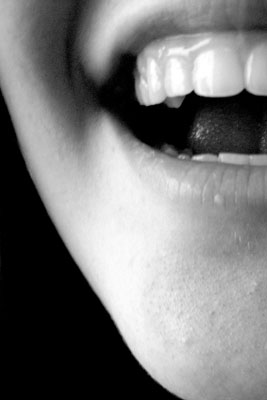All Nonfiction
- Bullying
- Books
- Academic
- Author Interviews
- Celebrity interviews
- College Articles
- College Essays
- Educator of the Year
- Heroes
- Interviews
- Memoir
- Personal Experience
- Sports
- Travel & Culture
All Opinions
- Bullying
- Current Events / Politics
- Discrimination
- Drugs / Alcohol / Smoking
- Entertainment / Celebrities
- Environment
- Love / Relationships
- Movies / Music / TV
- Pop Culture / Trends
- School / College
- Social Issues / Civics
- Spirituality / Religion
- Sports / Hobbies
All Hot Topics
- Bullying
- Community Service
- Environment
- Health
- Letters to the Editor
- Pride & Prejudice
- What Matters
- Back
Summer Guide
- Program Links
- Program Reviews
- Back
College Guide
- College Links
- College Reviews
- College Essays
- College Articles
- Back
A Reluctant Product of Therapy
Like many pediatricians and other adults who spend most of their time around children, she used false enthusiasm to cover up her other emotions. And also like many other adults who make spending time with children their jobs, she lived under the assumption that children were unable to see through this falsehood, and that children would somehow find this enthusiasm entertaining, or comforting, or relatable. But every time she smiled at me, the skin on her face bunching up under her cheeks and forehead to make room for her unnaturally large grin, I would cry. Because instead of her smile being reassuring, it confirmed to me that something was wrong. Not only that something was wrong, but that something was wrong with me.
Her name was Ann, and she was one of my physical therapists. For three or four one-month spouts between the ages of three and twelve, my mother dragged me to her twice a week to undergo some new-wave quack therapy called Tomatis, a treatment in which I wore enormous headphones and listened to high-pitched opera music for hours on end, which, the doctor claimed, was supposed to cure everything from ADD to depression.
At times I have convinced myself that all the time I spent with Ann was pointless. She was a board-certified torturer. And who was I for living through this? I was the glorious survivor, who was able to outlast her condescension and her misreading of my abilities, and through a philosophy of self-reliance and emotional fortitude, let my suppressed intelligence and charm blossom! It was, at least, easier to believe this. However, I have come to realize going through therapy as a child increased my success in social and academic spheres as an adult.
I have to admit now that as a child I was slow to learn to read. I remember sitting in my 1st grade classroom with my paper reading exercise book, which had shorter words than everybody else’s, stumbling through “The Cat and the Mat”. My mild cerebral palsy was also something visible; I have home videos of me running like a duck on the soccer field, my right foot making a ninety-degree angle outward with each step. Perhaps I was just a late-bloomer for reading, and my cerebral palsy magically disappeared when I matured. But more likely, it was the many hours I spent in therapy that propelled me to be a good student, if not an exceptional athlete, as a young adult. My physical therapist, Skippy forced me to my physical limits on the treadmill, even though my limit might have been fifteen minutes on the lowest speed. I learned to take sports, and many other aspects of my life, seriously, not covering them up with shoulder shrugs and sarcastic jokes. My reading tutor Erin nurtured me to love reading, putting an M&M on the bottom of every page I read correctly. The pleasure of candied bribery turned into actual enjoyment as I was able to move up from such boring books as “The Cat and the Mat” into riveting classics such as Harriet the Spy. Now reading has not only turned into one of my favorite free-time pleasures, but is also one of my major academic strengths; being able to read well and understand words has allowed me to write good research papers for history and to understand complex concepts in my biology textbook. Even Ann, while I was listening to that terrible music, engaged me in games of Scrabble Jr. and checkers, fostering my competitiveness and love for solving puzzles.
Therapy is a gift I have learned to appreciate; many of the things I consider part of my unique trademark – my love of reading, my love of puzzles, my frankness and sincerity learned in defiance to the tyranny of fake smiles – were a result of therapy. Therapy made me who I am.

Similar Articles
JOIN THE DISCUSSION
This article has 0 comments.
